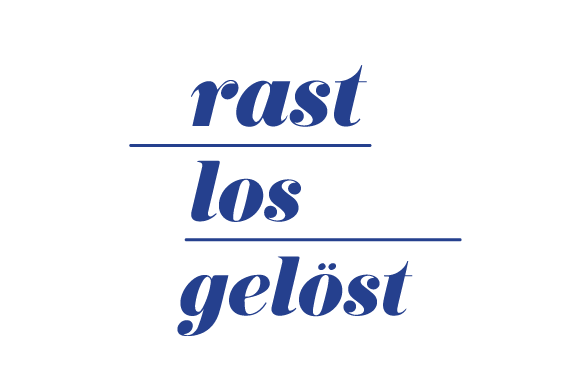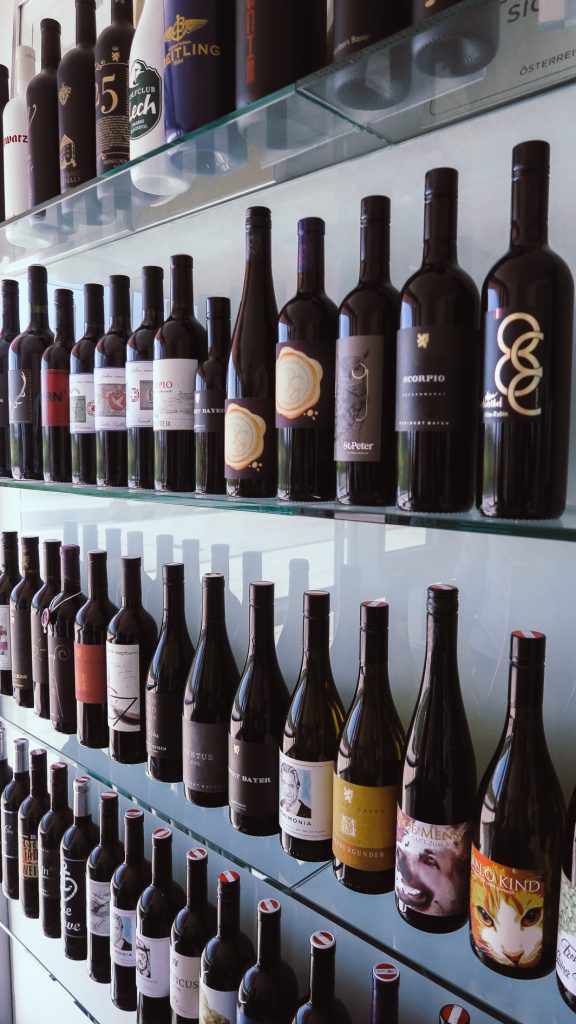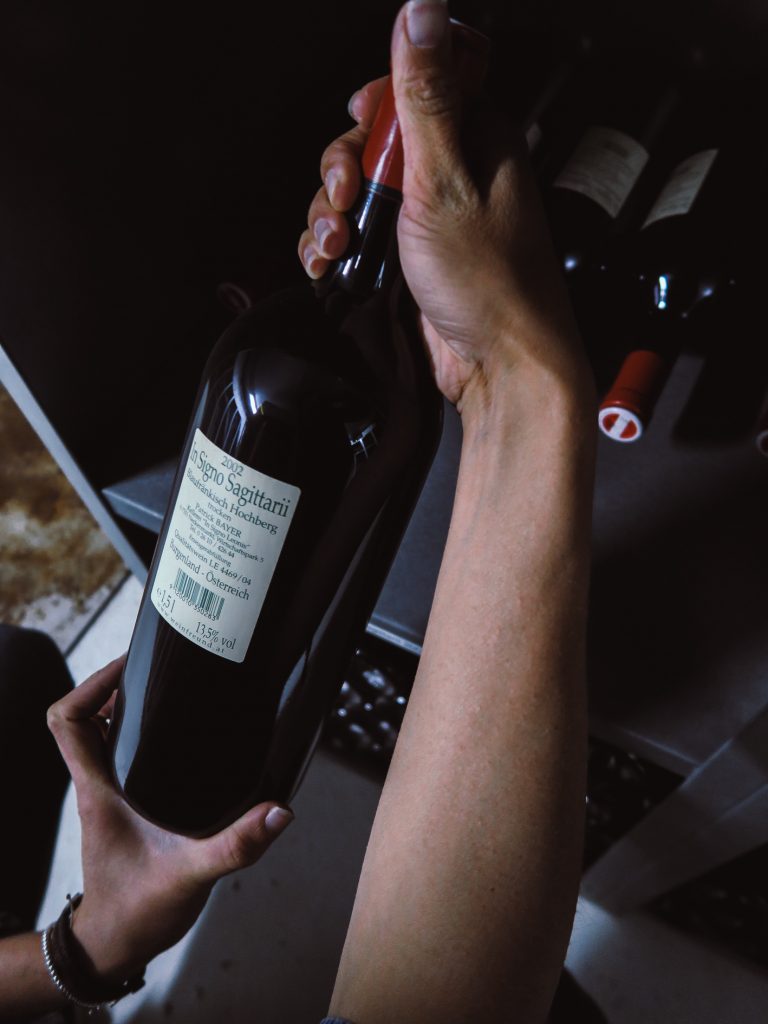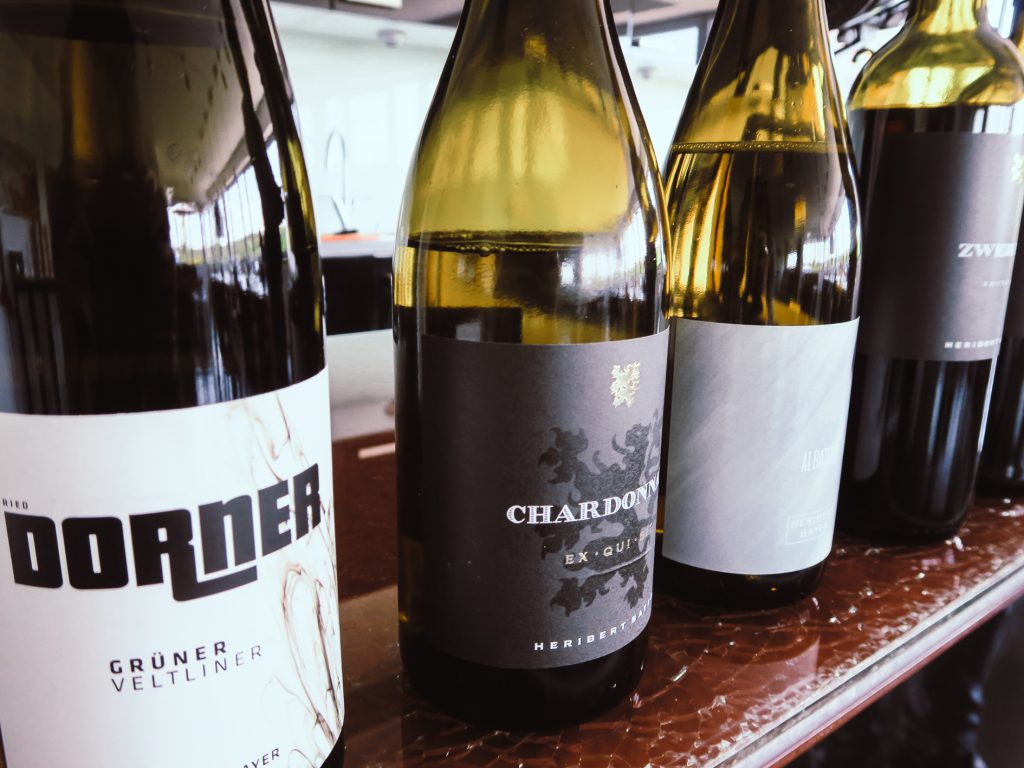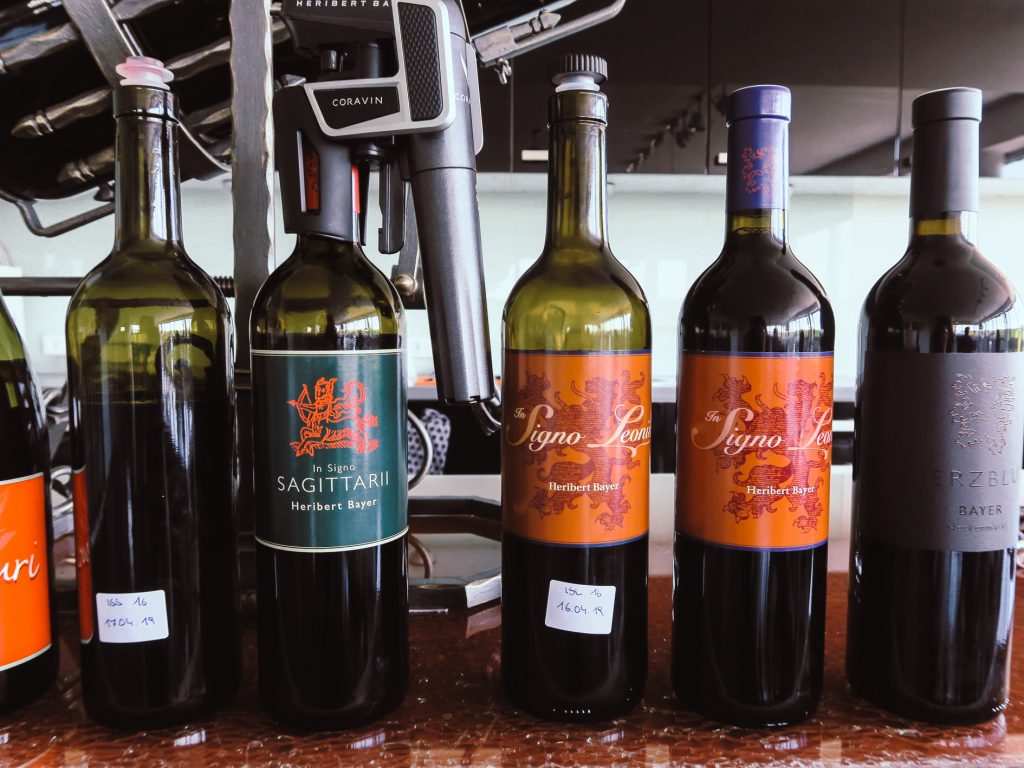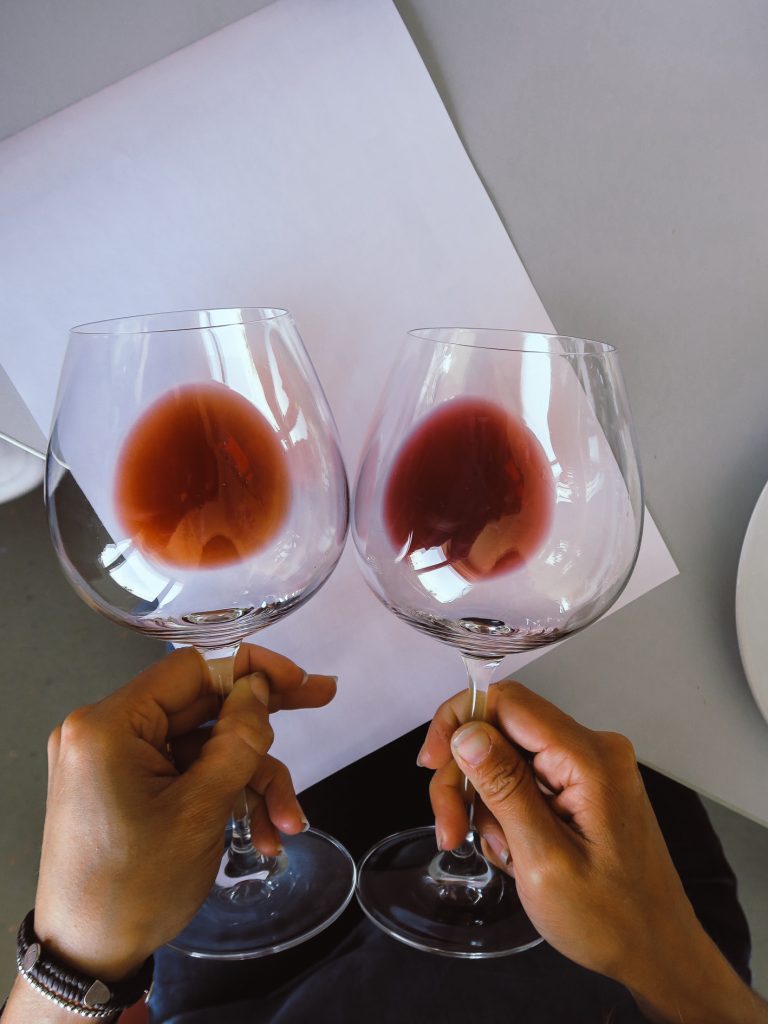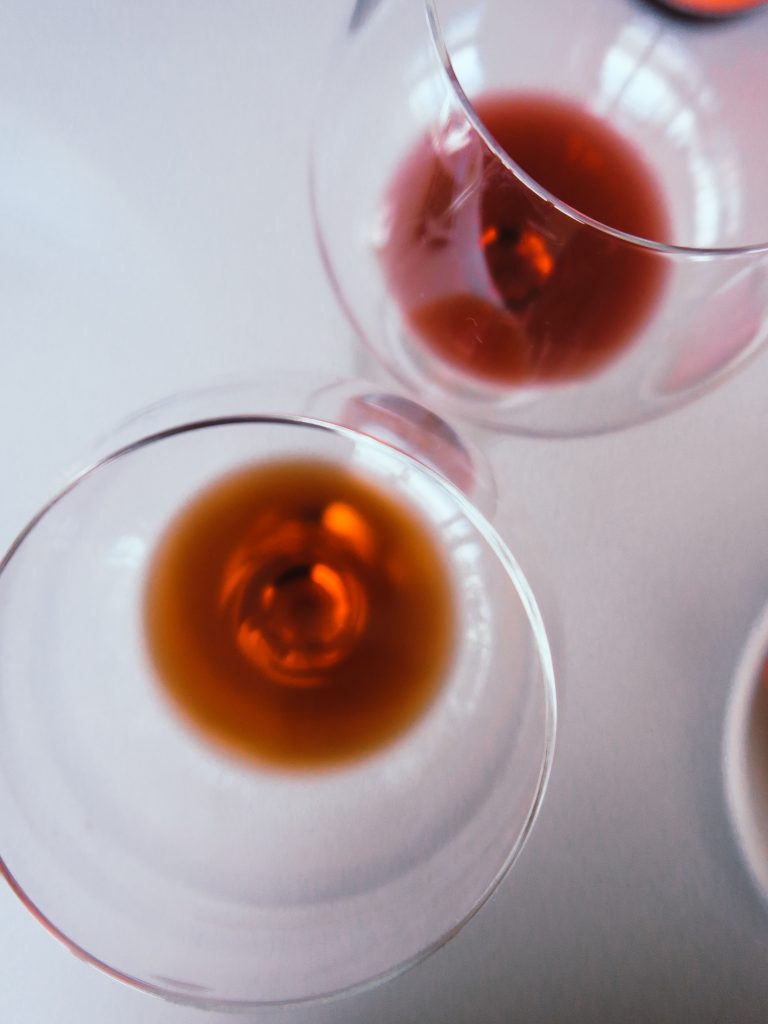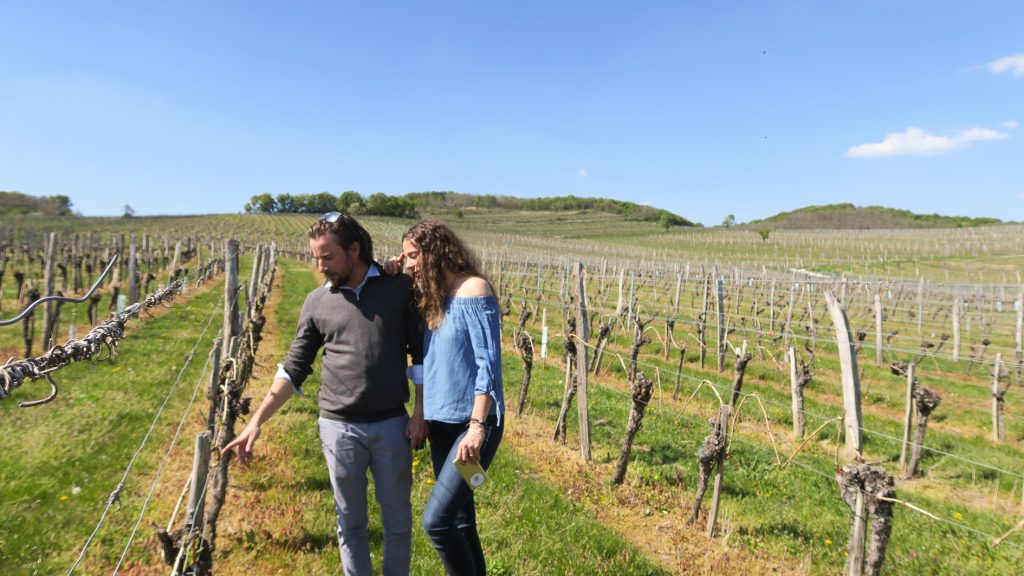Where high quality meets a unique philosophy
You might have heard about excellent white wines from Austria or even the so called “Weißer Spritzer” that people in Austria love to drink. What if I told you that there are also great Austrian red wines? Would you consider ordering an Austrian instead of a French or Italian one? In fact, the country is largely known for its outstanding white wines. But did you know that more than one-third of Austria’s vineyards are planted to red grapes? Most of them are dedicated to indigenious varieties that are adapted to Austria’s climate and soil – such as Blaufränkisch and Zweigelt. We wanted to find out more about Austrian wine. So we reached out to Patrick Bayer and Katja Bernegger who are representing Heribert Bayer Wines in second generation. If you want to learn more about why today Austria’s wines have a great foundation for global success, then read on!
All eyes on Patrick & Katja
Earlier this year we met Patrick Bayer, winemaker and CEO of Heribert Bayer Wines, and Katja Bernegger, who recently joined the family business. She is responsible for marketing and is the creative head of DesignYourWine. We had a long chat about wine and a great wine tasting in Neckenmarkt, a little village in the Burgenland region. We talked about what shook up the international wine business in the 1980s and how this made Heribert Bayer, Patrick’s father, find his way into the business in his late 40s without having any practical experience as a winemaker or a family wine business background. And if you never heard about so called negociants, the time has come now! Get to know what a negociant’s job is, how Patrick became one of the youngest ones worldwide and learn more about the Heribert Bayer-philosophy.
First of all: What’s a negociant?
If you look up the definition you’ll find something like this: “negociants are wine experts and mercants who buy grapes, juice or the finished wine from growers, then bottle and sell them on the market wholesale.” This means that they don’t own any vineyards themselves. In case of the Bayer family they work closely together with the Neckenmarker collective and their winegrowers. This allows them to have access to one of the oldest Blaufränkisch vineyards of Austria that are more than 70ty years old.
While negociants are common in France and Italy, they are quite rare in Austria. “What we really love about being negociants is that we can produce wine in perfect location with the ideal grape variety. Moreoverwe let the growers do what they can do best, and we focus on producing excellent wine using the best grapes” explains Katja. Today, there are a few negociants known for selling some of the finest wines on the market. And sometimes it happens that life gives you a sign and that you choose a new path even in your late 40s. And this is exactly what happened to Patrick’s dad in the 1980’s.
How it all started..
Heribert Bayer was born in Austria but grew up in Milan, Italy. This is also where he got to know and appreciate excellent wine and a traditional wine culture, also thanks to his father. Later on he studied chemistry, married and had a good job in Austria. It was only in the 1980s that he started his self-study in oenology – the science and study of wine and winemaking. He focused on materials published by universities from Italy and California.
And then it happened..
In 1985, when Patrick was only one year old, it was discovered that several Austrian wineries adulterated their wines using diethylene glycol, a toxic substance, to make the wines sweeter and more full-bodied. Since many of these Austrian wines were exported to Germany to be bottled there, some of them were also blended into German wines by the importers. As a result, the toxic substance ended up in German wines as well. What happened then was something no one was expecting at this time: the Austrian wine exports collapsed completely! The reputation of the entire Austrian wine industry was negatively affected by this scandal.
And this was exactly when Heribert Bayer entered the scene with his knowledge as a chemist and oenologist to help Austrian winemakers find a way out of misery and back on track. A task that was not simple at all! During his wine studies he discovered major differences in the wine production and storage between Austria and countries like Italy or France where some of the best red wines came and still come from. He started providing his support to Austrian winemakers. It took him quite some time to convince some of them to use barrique barrels with a unique toasting to create full-bodied red as well as white wines – a technique that was not used at all in Austria until then. His pioneering work as Austria’s probably best-known oenologist helped many winemakers not only back on track but also improving their wines and reaching an international quality standard.
The birth of Bayer’s signature wine
It was only in 1994 that he acquired the grapes of a winemaker he was working with and produced his very own red wine, a Cuvée made of Blaufränkisch, Zweigelt and Cabernet Sauvignon grapes. His very first signature wine was born: In Signo Leonis. He got in touch with Adi Schmid, who was Austria’s most famous sommelier for decades and immediately convinced him. The first batch was sold out quickly, but it would take a couple of years to start producing on a larger scale. Heribert started looking for the right spot in Austria where he would find the best grapes for the wines he was about to create. In the year 2000, he finally found this spot in Neckenmarkt in the Burgenland region of Austria that is best known for its Blaufränkisch red wine grapes.
This wine is phenomenal!
Adi Schmid, Austria’s most famous sommelier about Bayer’s very first In Signo Leonis
The new generation is taking over
What’s so special about Heribert’s path is that he does not come from a winemaker family. He started his wine business with a completely different and more scientific approach pretty late in life, motivated by his profound passion and probably also by the challenging circumstances he was facing in Austria’s wine world. So when he found this perfect spot of land where he would have access so some of the best grapes, it was time for the next step. And for this one he needed his son on board who was only 16 back then.
Just imagine being asked by your dad at this young age if you could think of building and then taking over a wine business together with him. Motivated by his dad’s passion and philosophy that he also transmitted to his son, Patrick joined the family business when he was only 16. His decision also influenced the big next step and led to building the In Signo Leonis Winery in Neckenmarkt, Burgenland that is still the winery’s headquarter.
I consciously decided not to change the company’s name when I took over my father’s wine business when I was 26. We are known under his name – Heribert Bayer. It’s a hommage to my dad, his philosophy and his pioneer work in the 1980’s. Also, it’s always fun when people call me Heribert instead of Patrick!
Patrick Bayer
In 2002, when Patrick was only 18, he produced his first red wine with a little help of his experienced father. The full-bodied Blaufränkisch was named after his zodiac sign, In Signo Sagittarii. It is still one of the winery’s best-sellers. Almost at the same time, Heribert created another signature wine called In Signo Tauri – a Pinot Noir. Creating a good Pinot is a supreme discipline for every winemaker since it’s one of the hardest grapes to grow and also one that often causes winemakers some headache during the growing process. He dedicated this wine to his wife Sissy, his queen.
Quality with no compromises
The Bayer family’s business is built on two beliefs:
1. The older the better
Great wines need time. Heribert Bayer consciously decided to withhold a part of the quantities produced to be able to offer mature wines to be enjoyed at their quality peak. This is their way to create, trsnsmit and keep the wine culture in Austria alive. Today Patrick is following his dad’s footsteps. Wines are stored at perfect conditions at their winery in Neckenmarkt. Today you can enjoy the award-winning Heribert Bayer wines produced from 2002 up to today.
My plan for the future? Maybe I’ll become a Flying Negociant!
Patrick Bayer
2. It’s all about teamwork
Great wine is the result of great teamwork between the growers and negociants, between Patrick and his dad who is still his consultant, between the technique using barrique barrels with a unique toasting to give the wines a full-bodied taste and the many years of experience that make it possible to create the best compositions for their signature wines. It’s also great to see, how Patrick and Katja work together as a team in private as well as in professional life: “With Katja I did not only find my partner in life, but also my partner in business. We are constantly challenging each other to become better. She brings in a lot of knowledge from marketing and communication, and is an extremely talented wine conoscieur. When we go to wine tastings, she’s the one beating me with her exquisite taste and knowledge about wine.”
Design Your Own Wine
More than ten years ago Heribert Bayer also specialised in offering personalised wine – from the composition of the wine to the creative label. With Design Your Wine you can choose one of their wines or collaborate with Patrick and his team to create your own one. Also, there’s the possiblity to design your own label for their wines. This can be done directly on their website and is a hell of fun. You can personalize the wine for any occasions such as weddings, birthdays, a company party and many more. We were more than surprised when we received a collection of Rast.Los.Gelöst. labelled wine for the launch of our website in 2018. Special thanks to Katja for this nice surprise!
In Vino Veritas
It’s every winemakers goal to create their own signature wines with very specific characteristics. During our tasting Patrick and Katja presented some of their best known as well as new creations. And let me tell you one thing: it’s not surprising at all that many of their wines are award-winning! Here’s a selection of wines they had selected for the tasting:
- Grüner Veltliner Ried Dorner (2012): Fruity nuances of mango and apple and a unique minerality are the characteristics of this Grüner Veltliner – a very classic Austrian white wine.
- Chardonnay Albatros (2017): a rarity and the perfect combination of fruity and wooden notes that combine to an intense taste explosion on the palate. Perfect choice for Burgundy enthusiasts.
- In Signo Leonis (2014): This Cuvée won numerous awards in Austria and abroad and is one of Austria’s top red wines. Elegant and powerful with a strong finish and also the houses first signature wine.
- Merlot (2017): Juicy and robust structure, powerful and with a flattering finale on the palate. Perfect accompaniment to meat, intense sauces and vegetables.
- Cabernet Sauvignon (2015): Fresh but a bit sweeter than the Merlot. The pure Cabernet Sauvignon has an international flair and is still a typical wine from the Burgenland region.
- In Signo Tauri (2004 & 2016): Intense on the palate, yet delicate in taste. For a unique experience, try the winery’s 2004 In Signo Tauri Pinot Noir.
- In Signo Sagittarii (2008 & 2016): Patrick’s first signature wine impresses with its elegance and multi-faceted finish. We tried the 2008 one that is mature and very balanced while the 2016 one is a young Blaufränkisch that will be dancing on your palate.
- Herzblut (2012): The winery’s limited wine edition that is composed of Blaufränkisch (70%), Merlot (20%), Cabernet Sauvignon (5%) and Zweigelt (5%). Produced approx. every 4 year and only if the quality of the grapes is extremely good. Limited to 1000 0,75L bottles and 600 magnums.
*All wines are available online. Check out the wineshop here.
Wine should always be a unique experience. This is what we are aiming for.
Katja Bernegger
